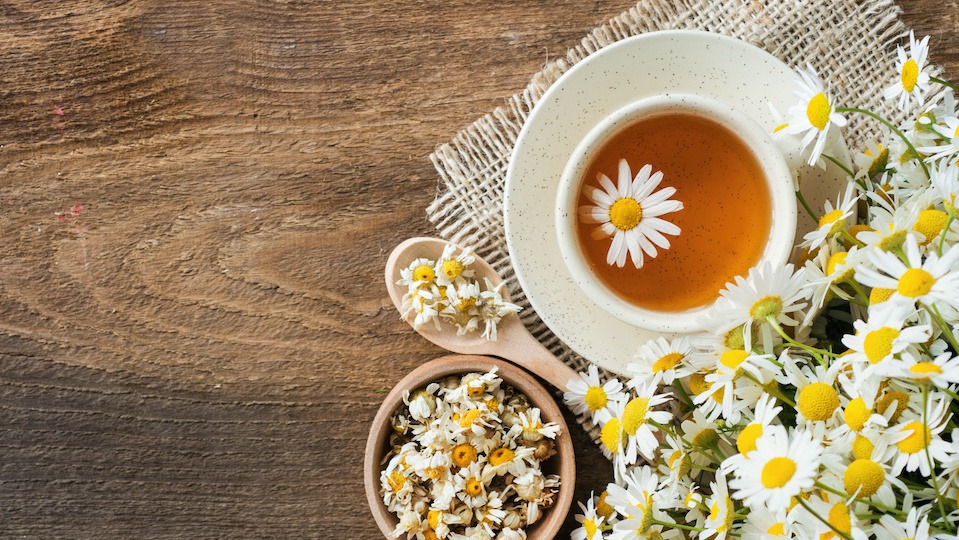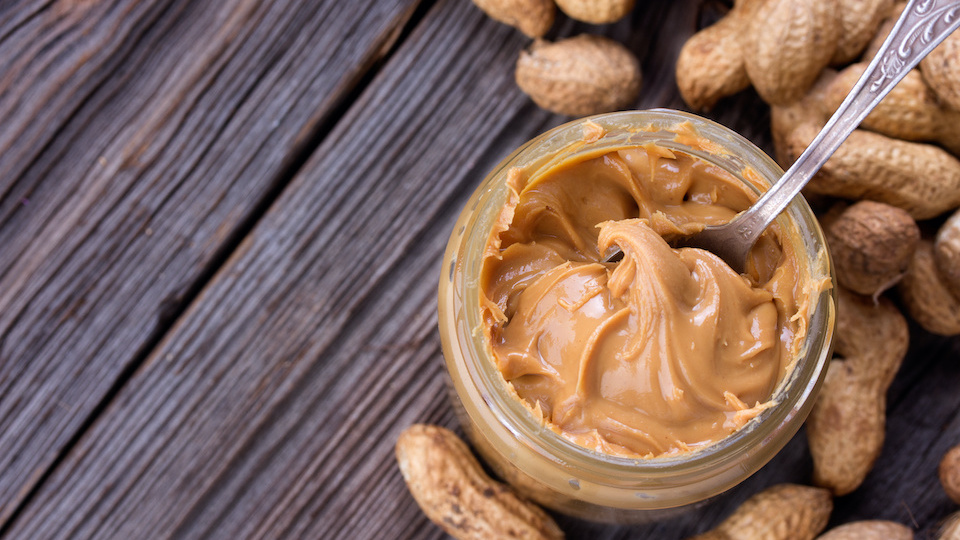Do you like to sip a hot cup of tea in the evening? Even if you haven’t enjoyed this habit in the past, now might be the time to get started. With just one cup of this powerful herbal tea, you could promote a better night’s sleep, ease digestion, fight disease, and slow the signs of aging.
What is this miracle tea? It’s none other than chamomile, the classic “sleepy time” tea. But while many people enjoy this well-loved herbal drink before bed, they often aren’t aware of its far-reaching benefits.
If you’re a regular chamomile drinker, this article will inspire you to keep up the habit. And if you haven’t had chamomile tea before, perhaps you’ll be inspired to try a cup!
Chamomile tea promotes better sleep
Many of us face difficulties in falling asleep and getting a full night’s rest. Due to its relaxing properties, chamomile is considered effective in improving sleep quality. A study involving a group of people aged 60-plus found that patients’ sleep quality was “significantly improved” after 28 days of consuming chamomile. Another survey of a group of 80 women with poor sleep quality found that the women slept better after only two weeks of drinking chamomile tea. The effects were reversed after the women stopped drinking the tea, so it’s essential to keep up the habit.
Chamomile tea boosts your mood
If you struggle with anxiety or depression, chamomile may help create a more balanced mood. One study found that chamomile had the ability to relieve symptoms in patients with mild to moderate anxiety disorders, while further research supports its use as an antidepressant. These effects may be stronger when chamomile extract is taken orally as a supplement.
Chamomile tea fights pain & inflammation
Chamomile tea contains chamazulene, an aromatic chemical compound that possesses anti-inflammatory, analgesic, and antispasmodic properties. A study was able to pinpoint the source of chamomile’s pain-relieving activity, finding that it blocks COX-2 enzyme activity and inhibits the release of prostaglandins, which promote inflammation, pain, and fever. The pain-relieving mechanism of chamomile is similar to the function of non-steroidal anti-inflammatory drugs (NSAIDs) but without the side effects. This anti-inflammatory action could be helpful for people with diabetes, osteoarthritis, and cardiovascular conditions.
Chamomile tea eases digestion
Traditionally, chamomile has been valued as a digestive relaxant and has been used to treat various gastrointestinal problems such as flatulence, indigestion, diarrhea, nausea. Parents have also found chamomile’s calmative effects to help with colic in infants. The dual benefits of digestive relaxant and anti-inflammatory are particularly soothing for inflammatory bowel disorders.
Chamomile tea soothes PMS
Scientific research has confirmed the age-old use of chamomile as a menstrual soother. One study found that chamomile is even more effective than anti-inflammatory drugs for soothing the emotional effects of PMS while also helping to relieve physical discomfort.
Chamomile tea is healing for the skin
Chamomile has been found to exhibit powerful antioxidant activity through its many active compounds. Antioxidant properties can protect skin against free radical damage, which is a cause of visible aging. Chamomile can not only keep skin looking younger but can also protect against the development of skin cancer. The anti-inflammatory properties of chamomile are also soothing for skin irritations such as eczema.
Chamomile fights cancer
Compounds called apigenin glucosides are believed to be the source of chamomile’s cancer-fighting abilities. Chamomile extracts have been shown to stop the proliferation of cancer cells and even cause cancer cell death, without damaging the surrounding normal cells.
Dangers of chamomile tea
Although this herb is generally considered so safe that it is often recommended for babies, there are still some potentially dangerous side effects to be aware of.
Chamomile tea is linked to lowering blood sugar levels; however, it can also thin blood due to its coumarin content, so discuss with your doctor if you are taking blood-thinning medication. People with allergies to pollen or any plant in the daisy family should also be aware that consuming chamomile products could cause a severe reaction.
How to grow your own chamomile
Chamomile is an excellent choice for a home herb garden. The beautiful Chamomile flower is native to Asia, Europe, Australia, and North America, and blooms during the early summer months. If you’re thinking about using it in teas, consider growing German chamomile. It is an annual plant that often self-seeds, whereas Roman chamomile is a perennial most commonly used as a ground cover.
Flower heads are ready to gather when the petals are flat or begin to fall back from the center. Gather the flowers on a sunny day after the morning dew has dried. Harvest blossoms by snipping them off when they are fully open.
To dry the flowers for tea, spread them out and place in a dry, cool spot out of the sun for up to a week. They can also be dried in a food dehydrator or oven. Once dry, store chamomile in an airtight container out of direct sunlight and away from heat and humidity. It will retain its flavor for up to a year.
Before you settle down to bed tonight, why not try a relaxing ritual with a soothing cup of chamomile tea. You might just find you wake up feeling amazing!
-The UpWelllness Team









